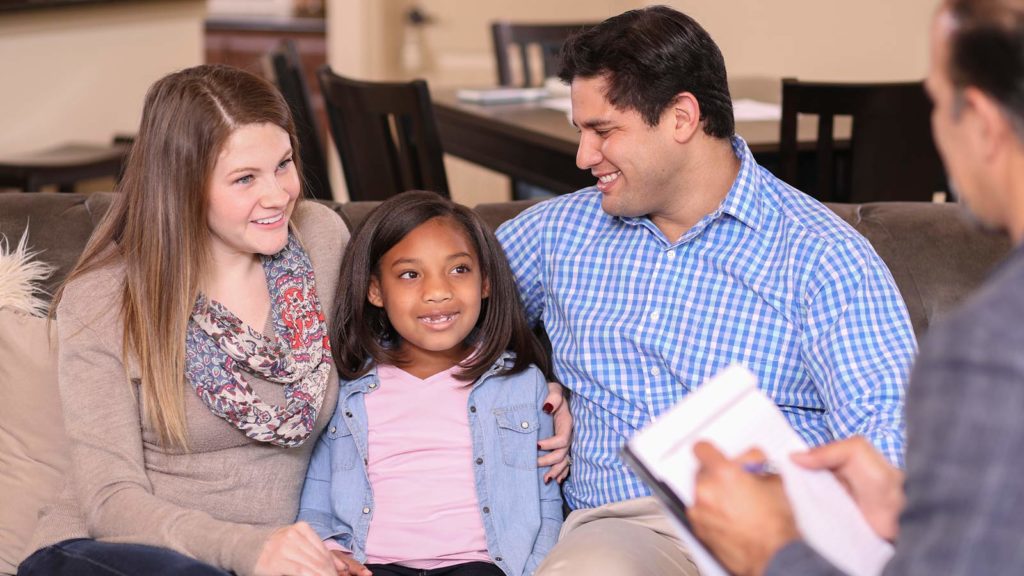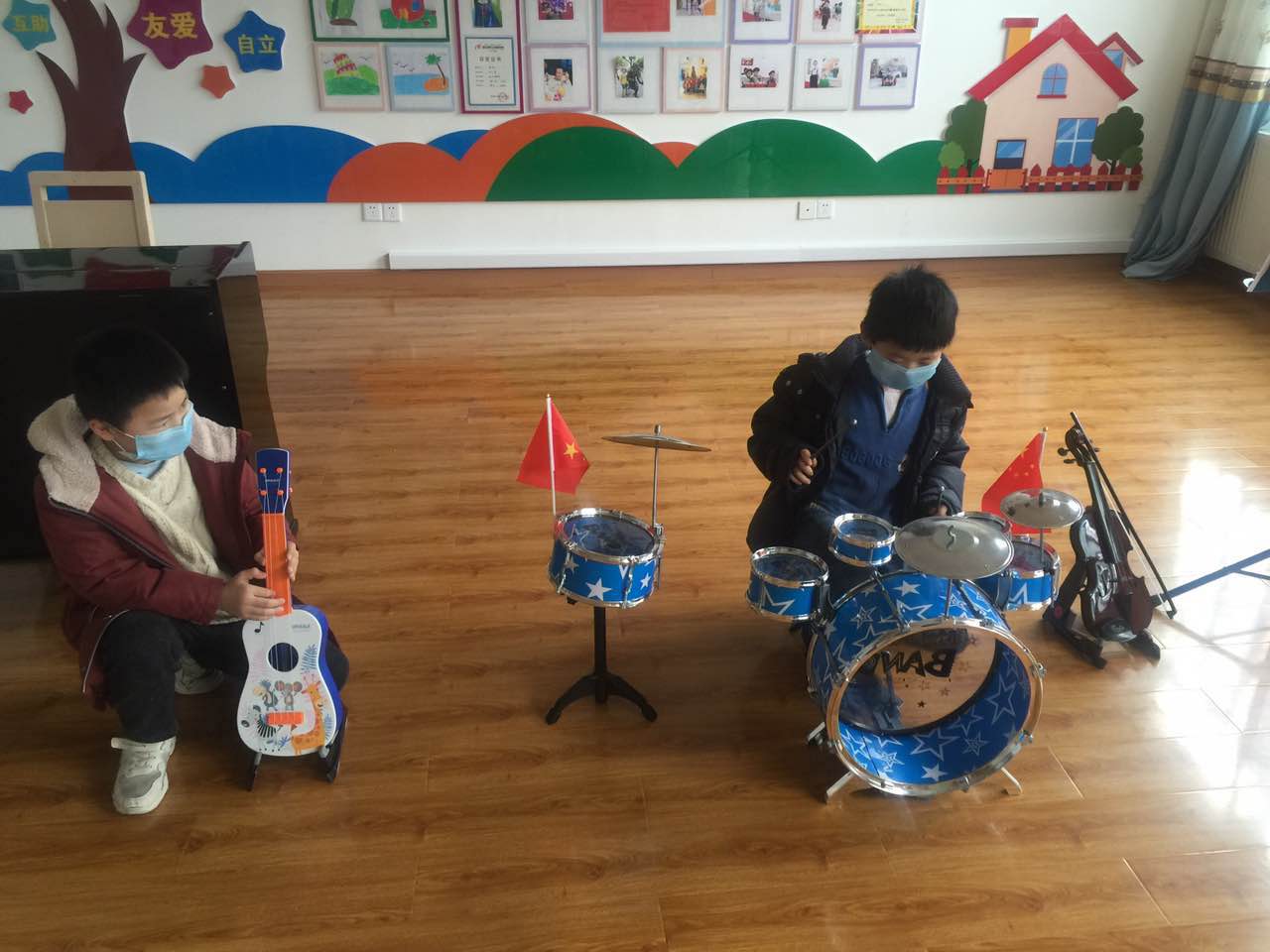Sunday Silver, Holt’s Post Adoption Services Records and Information Administrator, shares thoughts on what to do when fear and insecurities interfere with one’s confidence as a parent.
I wonder, as I watch my daughter become independent and grow as a person, how I got so lucky. I reflect on my role as a parent and wonder if I did a good job. Yes, she is a strong, independent, successful young women, but how much is that really about my parenting? Those reflections can oftentimes turn to, “Was I a good enough mom?”
As I talk with adoptive parents whose child is entering adulthood and preparing to leave the nest or has already left the nest, I hear the same questions — the same reflections.
I often wonder what makes it so difficult. I come to the realization that one of the strong emotions we feel when we become a parent, whether by birth or through adoption, is fear — which can bring out our insecurities.
Sure, we experience the joy as well. We feel that strong love only a parent can feel for their child. However, through all the happiness and joy, that ever-present fear is still there, gnawing at us. “Will I be a good enough parent?” “Can I keep my child safe?” “Will I mess up?” “Will my child grow to hate me?”
The day I brought my daughter home from the hospital, that fear consumed me. The realization that I was now responsible for this little baby was overwhelming. “What was I thinking?” “I can’t be responsible for this little life?” “How will I manage” and on and on… I am thankful my husband was the calmness I needed. He was very supportive and reassuring. Although, years later, I found out that he was just as scared as I was. He was just better at hiding it.
Once we all settled in, that fear was not as consuming. Oh it was still there, nudging me every time I picked her up or fed her. Even after all these years, it is still there in the corners of my mind, wondering if I was a good enough mother. Those fears fed my insecurities. I found myself apologizing to my daughter for every misstep, every bad decision and for whatever I deemed as being a horrible mom. And as most kids do, she rolled her eyes at me and reassured me.
I then asked her if I was a good mom.
It was at that moment, I realized what I just did. I gave my daughter the responsibility of reassuring me as her parent instead of reassuring myself. I allowed my insecurities to spill over on to her and put my daughter in a caretaker role.
“Will I be a good enough parent?” “Can I keep my child safe?” “Will I mess up?” “Will my child grow to hate me?”
For adoptive parents, that fear can be even more pronounced and intense. After all, you just went through a process where a social worker deemed you worthy enough to be a parent. You might ask yourself, “Was their faith in me warranted?” “Will I be enough for this child who now calls me Mom/Dad?” “Will this child love me even though they grieve for their birth mother?” “Will this child hate me for adopting them?” The fear is there — some days very intense, and some days just a nudge.
Then they start school. You may wonder, “Will the kids be kind to my child?” “Will they bully my child because of the color of their skin?” “Will I be able to answer my child’s questions about their birth mother?” “Will my child still love me?” This cycle of fear continues through every developmental stage, and through every question your child has about their background. There are days the fear will be overwhelming and days it will not.
There is nothing wrong with having fears and insecurities about being a parent. It is inevitable and part of being a parent. It happens to the best of us. But it’s what you do with those fears and insecurities that matters.
Fear is a real emotion and it is legitimate. The more you push it aside and don’t acknowledge it, the more it can take control over you. It can come out in subtle ways. And it can feed your insecurities until before you know it, those insecurities spill over into how you relate to your child.
Fear is a real emotion and it is legitimate. The more you push it aside and don’t acknowledge it, the more it can take control over you. It can come out in subtle ways. And it can feed your insecurities until before you know it, those insecurities spill over into how you relate to your child.
It can be telling your child you love them and expecting a response in return. It can be asking your daughter if they are happy and anticipating and hoping their response will be positive. It can come out in saying you support your son in searching for their birth parents to the point of pushing it on them and not really listening to them when they say they are not ready. Or it can come out in trying to fix whatever they are feeling, but not letting them feel what they need to feel. “I’m sure they didn’t mean to call you a name,” you might say when your child feels hurt by another child. “Maybe you misunderstood.”
Inadvertently, you are asking your child to affirm that you are a good parent. You are asking them to take care of your emotions and reassure you that you did or are doing a good job. Instead of taking care of your own emotions, you’re asking your child to take care of them for you. This is often why we hear from so many Adoptees who don’t want to search for their birth family for fear of hurting their parents or Adoptees who want to search, but don’t want their parents involved. While you may think you’re keeping those fears to yourself by pushing them aside and not tending to your feelings — your child senses them. They hear it in your voice and in your body language. If you tell your child you’re okay talking about their birth parents, but you’re not really okay with it — they will know.
Your fear can also come out by avoiding certain adoption topics such as birth parents, grief and loss or race and racism because you worry it will put “ideas in their heads” or you think they are not old enough to understand and it will be too difficult for them to handle. You might think, “I don’t want to ask them about how they feel about their birth parents. It will make my child too sad,” or, “I’m waiting until my child is old enough to tell her about her background.” This is a time when you need to ask yourself, “Is this your own fear keeping you from having these tough conversations?”
I believe it is okay to admit your fears and insecurities to your child. I think this is healthy, but only if you follow it with, “These are my fears and I will tend to them. They are not your responsibility.” This gives the message to your child that you are able to acknowledge and take ownership of your feelings, and thereby models for them how to appropriately manage uncomfortable feelings.
I believe it is okay to admit your fears and insecurities to your child. I think this is healthy, but only if you follow it with, “These are my fears and I will tend to them. They are not your responsibility.”
The thing to remember, and this is very important, is to breathe and give yourself a break. There is no such thing as a perfect parent. You will also want to:
- First and foremost, admit that you have fears about parenting.
- Have a good support network such as family, friends and other adoptive parents.
- Make sure you and your spouse or significant other schedule regular date nights. A time away as a couple, away from the kids. Having regular times away from being a parent gives you an opportunity to decompress and take a breather.
- Journal. Some find it helpful to write down on paper the feelings they may not be able to verbalize.
- Make sure you have quality alone time. Take a walk. Set aside time daily or once a week to read a good book, meditate or pray.
- Get involved with a parent support group. It is helpful to know you’re not along. Other parents may have some helpful suggestions and tools on how to manage your fears.
- Go to a counselor. Sometimes it helps to talk with someone outside of your support community. I know some people shy away from counseling. Some seem to think that you have to be pretty bad off to seek counseling. But think about it this way— when you are feeling stressed or you have tension in your body, you may get a massage to work out the kinks and feel more relaxed. It can be soothing and rejuvenating. Why can’t counseling be the same? You can think of it as an emotional massage to calm your mind and soul. A safe place to talk to someone who can affirm your feelings and provide tools on how to manage fears and anxieties so they don’t spill over onto your relationships.
- Most importantly, forgive yourself if, at times, those fears spill over onto your relationship with your child.
Fears are just a part of being a parent. They don’t have to be consuming nor do they have to be something to be ashamed of. We all have them. Embrace those fears, acknowledge them, and tend to them so they don’t become bigger than they need to be. So they don’t consume you on a day-to-day basis and affect how you parent your child and how present you are for your child
Your child will have fears as well. They will struggle with their identity, they will feel grief and loss, and they will not know how to handle those negative and uncomfortable feelings. They will need you to tell them it is okay to feel whatever they need to feel even when it is uncomfortable. If you have not been able to deal with your own fears and insecurities, your own negative and uncomfortable feelings, how are you going to help your child handle theirs?
We, at Holt International, know that parenting can be overwhelming at times, and if you are looking for some support on your parenting journey, our Post-Adoption Coaching and Education (PACE) team is here for you. We understand that sometimes issues come up that challenge us but don’t necessarily require therapy or counseling.

Receive Post Adoption Coaching & Education
All parents encounter challenges as their children grow up. And sometimes, issues may arise that leave you uncertain as to how best to respond. But not every issue requires therapy or counseling. The PACE program is here to help during those times.



Beautifully articulated! It made me think about an example I shared in my book of an adoptive parent whose daughter was going off to college and her concern that her daughter would feel abandoned and lonely. In fact, her daughter was doing great and it was the mom who felt abandoned! We had a good laugh about that.